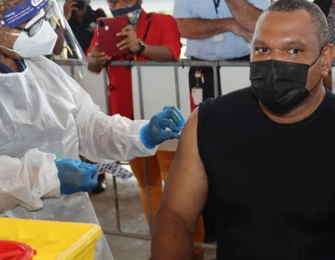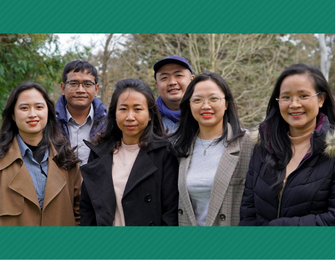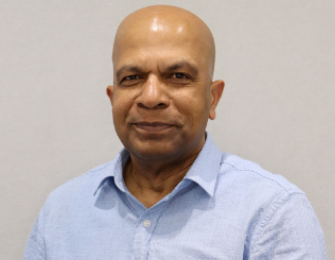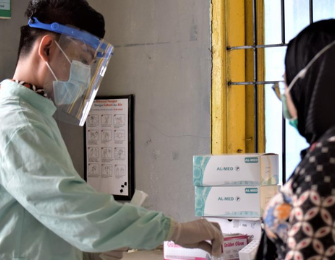
Australia’s long-term relationships with our nearest neighbours have been vital to driving forward COVID-19 vaccinations across our region.
The Therapeutic Goods Administration (TGA), part of the Australian Government Department of Health, is Australia’s regulator of medicines, medical devices, vaccines, sunscreens, complementary medicines, blood and blood products and is providing key support to some of our neighbouring countries in their COVID-19 vaccination rollout.
The TGA has been working with the Department of Foreign Affairs and Trade (DFAT) for several years on supporting neighbouring countries to strengthen regulatory systems and practices as well as to promote regional collaboration.
The relationships forged during this period have proved crucial during the pandemic.
Adjunct Professor John Skerritt, the Head of the TGA, explained that there is a special relationship between Australia and countries in the Indo-Pacific region. This relationship is built on respect and a mutual understanding that the political, economic and social systems are different throughout the region. As well as respecting these differences, we should also celebrate them.
“There's a degree of understanding of each other’s systems, facilities, resources, and it enables us to be realistic,” Prof Skerritt said.
The support provided by the TGA is broad
“Our job is to look at the safety of products, look at [their] efficacy, whether they work and also how well they're manufactured to a consistent quality, and that work doesn't stop when a product is approved,” Prof Skerritt said.
“It also continues for the whole lifecycle of when a product is available to people and even actually years after a product stops being available.”
But approving a medicine or vaccine in Australia doesn’t mean it will be approved overseas.
“It's a country’s sovereign decision whether or not they approve a product and also how they deploy the product,” Prof Skerritt said.
“Our role is to be as open as possible and share what information and knowledge we have. But to recognise that we're not there to tell them what to do. It's for them to make the final decision of how they want to proceed with a particular product.”
Prof Skerritt said an important part of encouraging people to make appropriate decisions about medicines and vaccines is to be transparent.
“There's not a single medicine or vaccine that's ever been developed, nor do I expect ever will be, that is 100 per cent free of adverse events,” Prof Skerritt said.
“The important thing is to have information about what we do know and don't know. And to also remind people of the risks of not being vaccinated… The message is for these vaccines, that the benefits are significantly greater than their risks.”
Trust takes time to build
When cases of COVID-19 in Papua New Guinea started to rise in early 2021, Australia was asked to help and the TGA has become a large part of Australia’s response.
Mr Wiseman, who leads the collaborative program, said the TGA representatives were able to have a very clear and open conversation with PNG officials about making decisions on the immunisation program, going far beyond the vaccinations themselves.
“It was really built on the fact that there was trust already developed on both sides and understanding of each other’s systems, the relationships that we had with the people there,” Mr Wiseman said.
“We were able to work very closely. And because we have been working with them for a little while we understand their systems, what they need, they understand us and what we can provide.”
Work put into the relationships over time has proved invaluable.
“Trust, as in any relationship takes time to build, it takes an openness,” Mr Wiseman said.
Read more:




